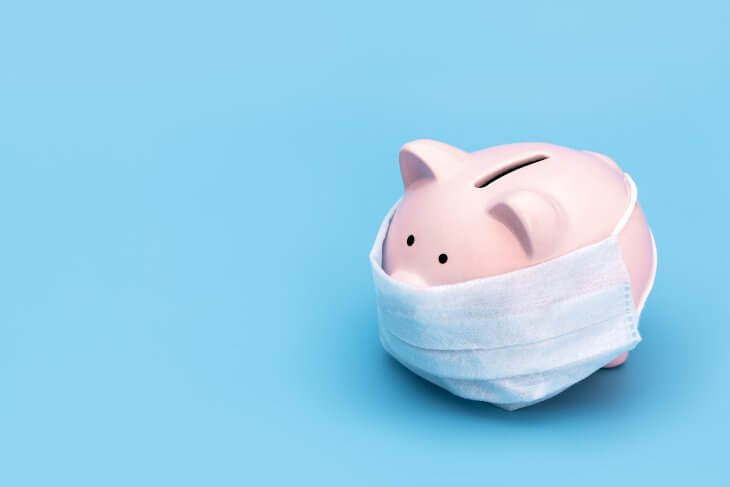
For many people, the financial repercussions of months in lockdown will be worrying. Some people have lost their jobs, others have been furloughed, and some have been able to carry on as normal, but for everyone, it's a good time to think about financial planning.
A large part of that financial planning will be understanding what expenses you have and finding ways of reducing the ones that are unnecessary. We all have fixed expenses that we need to survive, but we've also got plenty of costs that we could quite easily do without.
So, what are some steps you can take to reduce expenses during lockdown, and how can you go about doing it?
Make a Budget
If you're going to reduce your expenses, then a budget is vital. It's not until you map out exactly what you're spending that you truly understand what you've got to work with, and it's easy to underestimate what you spend when you just keep a rough track of your spending.
If you break down all of your expenses into categories, then it makes it much easier to prioritise. You will have some essential expenses that you can't avoid, but you will also find you've got expenditure in areas where you can cut back.
It seems very simple, but making a budget can make a big difference to your expenses.
Ask for Financial Advice
The true economic implications of the Coronavirus pandemic are yet to be seen, but the government is offering lots of different packages to help people through this period.
Depending on your situation, you might benefit from one of these packages, so it's well worth exploring your options. Speak to your accountant, bank, employer, HMRC, or a free financial service and find out which option works best for you.
There is financial aid available to you, but sometimes you just need to ask for a little help in getting it all sorted. Once you've spoken to an expert you can rely on, it will be a big weight off your mind.
Share Your Subscriptions
Finding ways to keep entertained has been vital during the lockdown, and subscriptions for services such as Spotify, Netflix, Amazon Prime, Disney+, and many more have helped to keep us sane.
However, when you've got a subscription to lots of different services, the costs really start to add up. There is a way to make significant savings, though, by sharing subscriptions with your family and friends.
For example, if you have a basic Netflix subscription, you can use it on one screen at a time for £5.99, but if you have the premium, you get four screens for £11.99. If you split that between 4 people, then each person pays £3.
These might only be small savings, but when money is tight, it can really add up.
See if You Can Find a Better Energy Deal
Energy doesn't come cheap, and we pay a lot of money over the year to keep our houses lit and heated.
Many people don't shop around for the best energy deals, though, and this can end up costing them money. When your energy deal finishes, most companies will auto-renew your policy, and many people allow this to happen without finding out if they can get a better price.
If your energy deal is up for renewal, then you can find significant savings by shopping around. At the very least, call your current energy provider and see if they can give you a better deal than what they're offering in the autorenewal.
Energy companies rely on you not shopping around for a better deal, but if you do, you can find good savings.
Find some of the UKs best energy deals here.
Find Savings on Car Insurance
The same thing goes for car insurance. We often allow our policies to roll-over, but if we shop around, we can find a much better deal.
If your car insurance is up for renewal, then you might be able to find some extra savings, and it's worth remembering that your total annual mileage is likely to be reduced due to isolation restrictions. This should further reduce your costs and give you a little bit more space in your monthly budget.
You will have the option of paying monthly or paying for the whole year upfront, and if you can pay it all in one go, then again, it can lead to some savings - and it's one expense you don't have to consider for a whole year.
Perhaps the lockdown has even shown you that you don't need your car, and in which case, you can cash in on the value of your vehicle and avoid car insurance payments altogether.
Check out our guide to the different insurance types and how to get the best deal.
Save Your Commute Money
Talking of not needing the car, working from home has meant that many people no longer have to do the pesky commute. Commuting not only takes up your valuable time, but it can be very costly.
Fuel is not cheap, and people end up spending thousands a year just paying for their commute. With people stuck at home, and more people working from home, this means people are making a significant saving in this area.
A good idea is to put that commute money that you're saving into a pot that you can use to pay bills. When everything is lumped into one account, it's hard to see where you've made savings, but when you separate it out, you can clearly see how much different things are saving you.
Delay Your Mobile Phone Upgrade
We don't have to have our phones long before we're getting notifications about upgrades. We all want the latest tech, but do we really need it?
If your phone contract is about to expire, then your phone is generally only two years old and in good working condition. If this is the case, then you can easily keep your current phone and switch to a cheap SIM-only deal, saving you a lot of money.
You could quite easily go from a £40 a month deal to £10 a month, and you've got exactly the same phone you've been perfectly happy with. This represents a saving of £360 a year without having to change anything!
When things settle down, and your finances look a little bit more secure, then you can always opt to upgrade a few months down the line if you wish.
Get Refunds from Trips
If you've got trips booked, then it's well worth looking to see if you can get a refund. Companies can be a little bit difficult when it comes to giving your money back, but if things like your flights have been cancelled, then you should be able to get a refund.
Many airlines are trying to get people to take vouchers rather than refunds, which you can do if you want, but it's a good idea to dig a little deeper and see if you're entitled to a full refund instead.
This can mean getting hundreds of pounds back, which can make a massive difference to your finances.
Think About Your Food Shop
Food shopping can take up a considerable portion of your budget, and this is only right - we need food to survive. However, going to the store while you're hungry and throwing everything you see into your trolley isn't going to help you to reduce expenses.
It's much more effective to write out a shopping list before you go to the shop and stick with it. If it's not on your shopping list, then you don't need it, and the more you stick to this, the more money you will save.
Other things you can do are shop at a slightly cheaper store and be careful with buy-one-get-one-half-price deals. It might look like a saving, but if you weren't going to buy the second item and you don't need it, then you're not really saving money.
A significant portion of your budget goes on food, which means there are lots of opportunities to make savings in this area.
Free Up Some Cash
If you're in need of getting your hands on some cash quickly, then it can be beneficial to look at getting a loan.
Loans such as a logbook loan allow you to get hold of cash against the value of your car and take some money out of your assets.
Another way you can do this is by taking a look at your mortgage and seeing if you can release some equity by re-mortgaging your house. People have a lot of money tied up in their major assets, so at times like these, it can be helpful to find ways of taking cash out of those assets.
The important thing is that you do this as part of your budget, and you ensure you can afford the repayments. As long as this is the case, then a loan can help you get through these difficult times and leave you in a better position to pay off the debt further down the line.



